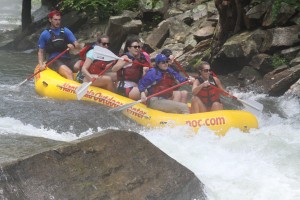This month is a hodgepodge of catching up and random musings. Right now, I’m writing from the back porch, enjoying the sunshine and (finally) warm temperatures as the kids play in the back yard. Today was a makeup teacher workday to account for all of the snow we’ve experienced this year, so we hosted a Spring Break Camp for kids who needed a little extra and didn’t already have plans for the week. It was a day of math and science for kids who don’t like either, and who, in the end, found themselves having fun anyway.
So, on to the task at hand: reflecting on lesson implementation/dissemination. As a specialist, I don’t have my own class. In the past, I’ve had the luxury of a small amount of time each week dedicated just to the students on my roster, but that disappeared this year. So, I needed to take over a different class in order to teach my lessons. After months of (re)organization, I finally opted to teach the lessons as an after-school club. I was set to go when suddenly, my plans once again went into the deep freeze as a blanket of ice coated our area. So, while my intention had been to complete the unit before Spring Break, the reality is that I’m just 2/3 of the way through it.
Teaching the unit has been eye-opening. I quickly became aware of the amount of supporting materials I need to include. There were times when, as a trained teacher, I wasn’t clear what the lesson was asking; I can’t imagine being a community volunteer with no experience trying to teach the same lesson. As I revise, I will need to keep this in mind. Furthermore, my kids have been brutally frank with me, telling me in no uncertain terms what works for them and what doesn’t.
Quote: “Um, Ms. Bedell, we’re fifth graders. We don’t do [that]. Maybe if we were third graders we’d think it’s cool, but, yeah.” /student rolls eyes
I appreciate the honesty and openness, not only because it will make the lessons stronger, but because it reminds me that my students ultimately trust me enough to speak their mind. They say things they “aren’t supposed to” because they believe that they will be heard. As I revise, my first and foremost duty will be to respect their voices.
This post feels unfinished right now, because it is. I’ll know more in April, once the kids have gone through the final lessons and we start preparing more seriously for the statewide pilot in July/August. Until then, I’m keeping my fingers crossed that winter really has moved on.

